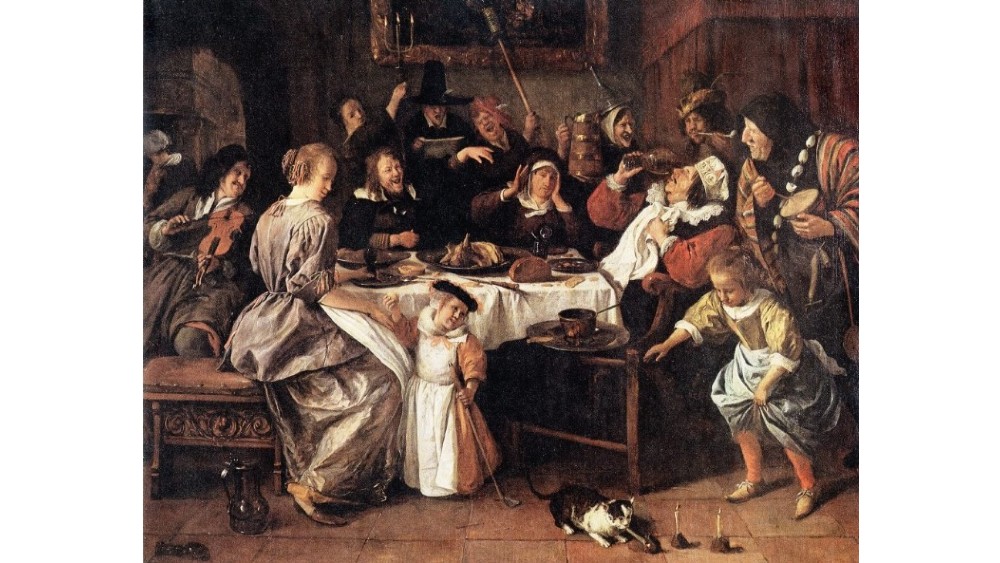Twelfth Night
Wishing You and Yours a Happy End to the Christmas Season on 12th Night
Today, 5 January, is the 12th and final day of the 12 Days of Christmas. Historically, tonight is also the Eve of the Epiphany. Note that in the U.S., since 1970, the celebration of the Epiphany is no longer tied to 12th Night, but rather is held on the first Sunday falling after January 1.
12th Night Celebrations:
Since medieval times, 12th night was celebrated in great parties with special foods and drinks. Because the British referred to their special Christmas punch as wassail, singing Christmas songs came to be referred to as wassailing. Recipes for wassail punch varied greatly, with the only general standard being that they were usually a hot, mulled, mildly alcoholic punch served from a “wassail bowl.”
Great bowls turned from wood, pottery or tin often had many handles for shared drinking and highly decorated lids. Traditional pubs in England sometimes boast antique examples of wassail bowls. This tradition informs the first stanza of the traditional carol Gloucestershire Wassail, variations of which were known to have been sung as far back as the 1700s, and possibly earlier:
Wassail! wassail! all over the town,
Our toast it is white and our ale it is brown;
Our bowl it is made of the white maple tree;
With the wassailing bowl, we’ll drink unto thee.
This from wiki on 12th night celebrations:
Food and drink are the centre of the celebrations in modern times. All of the most traditional ones go back many centuries. The punch called wassail is consumed especially on Twelfth Night and throughout Christmas time, especially in the UK, and door-to-door wassailing (similar to singing Christmas carols) was common up until the 1950s. Around the world, special pastries, such as the tortell and king cake, are baked on Twelfth Night, and eaten the following day for the Feast of the Epiphany celebrations. In English and French custom, the Twelfth-cake was baked to contain a bean and a pea so that those who received the slices containing them should be respectively designated king and queen of the night’s festivities.
In parts of Kent, there is a tradition that an edible decoration would be the last part of Christmas to be removed in the Twelfth Night and shared amongst the family.
The Theatre Royal, Drury Lane in London has had a tradition since 1795 of providing a Twelfth Night cake. The will of Robert Baddeley made a bequest of £100 to provide cake and punch every year for the company in residence at the theatre on 6 January. The tradition continues.
In Ireland, it is still the tradition to place the statues of the Three Kings in the crib on the Twelfth Night or, at the latest, the following day, Little Christmas.
In colonial America, a Christmas wreath was always left up on the front door of each home. When taken down at the end of the Twelve Days of Christmas, any edible portions would be consumed with the other foods of the feast. The same held true in the 19th–20th centuries with fruits adorning Christmas trees. Fresh fruits were hard to come by and were therefore considered fine and proper gifts and decorations for the tree, wreaths, and home. Again, the tree would be taken down on the Twelfth Night, and such fruits, along with nuts and other local produce used, would then be consumed.
Shakespeare used this eve as the title for one of his plays, Twelfth Night, because it was written expressly to be first performed during a 12th night celebration circa 1602. The play contains some memorable lines that have since passed into the common lexicon:
- “Some are born great, some achieve greatness, and others have greatness thrust upon them.”
- “If music be the food of love, play on.”
- “Journeys end in lovers meeting.”
- “Come away, come away, Death, and in sad cypress let me be laid.”

